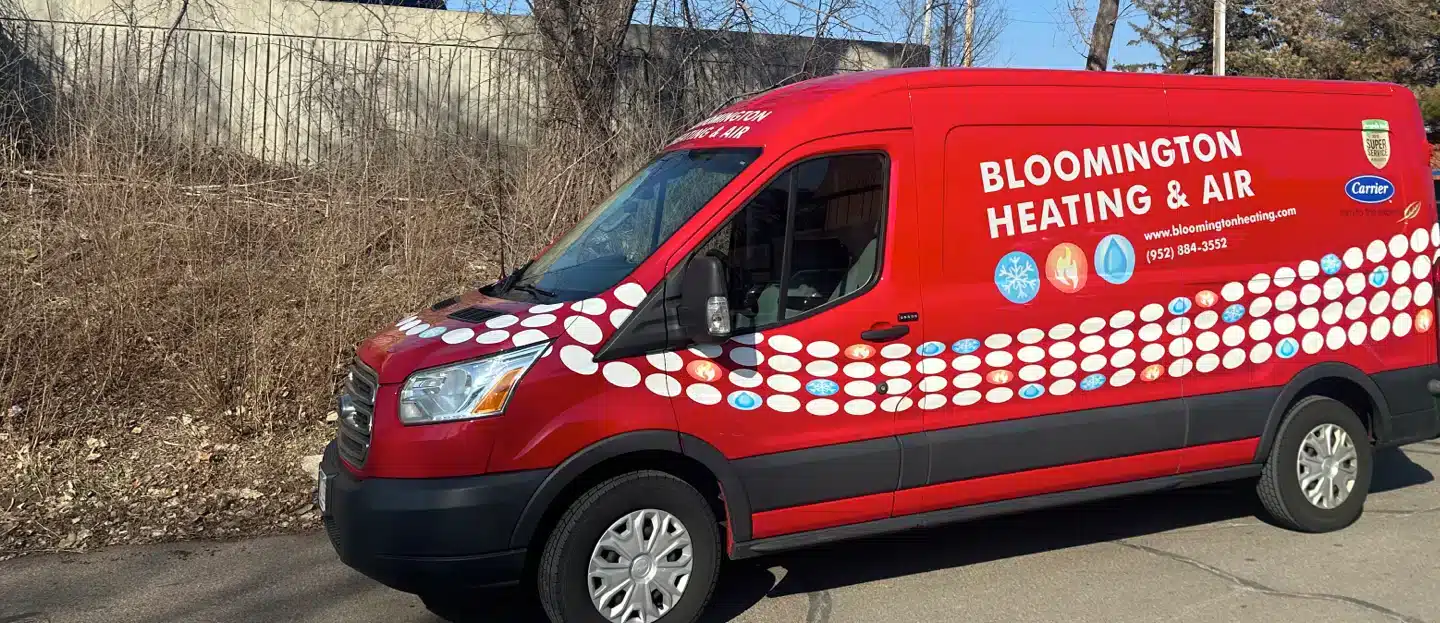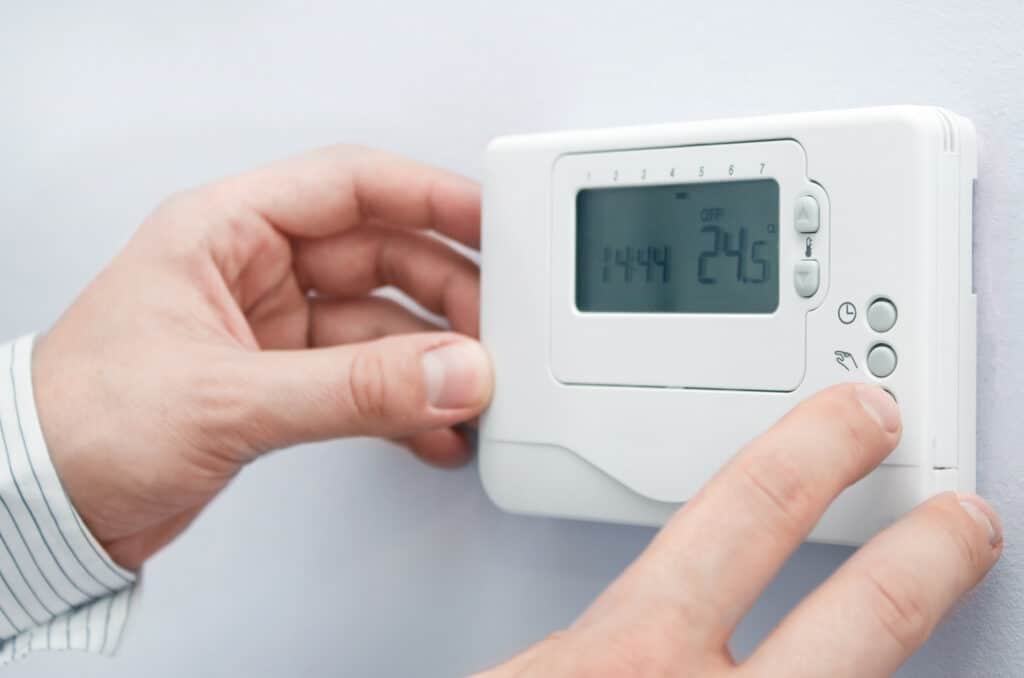
24/7 Emergency Phone Line
Family Owned & Operated
Licensed, Bonded & Insured
Everyone loves saving money, and one of the best ways for homeowners to save a bit of extra cash is by maximizing their household’s energy efficiency. A home that follows even a few energy-saving practices can see considerable savings on utility bills; however, for every legitimate piece of energy-saving advice you hear, there are several false energy myths. Misleading energy-saving tips can lead you astray and may even end up costing you more money than before.
Below, the heating and cooling experts at our HVAC repair company debunk six of the most common energy myths so you can avoid them in the future.
Contact Bloomington Heating and Air today to learn more about HVAC energy efficiency or schedule air conditioning service!
Setting The Thermostat Higher Heats The Home Faster
Not so! In fact, setting the thermostat higher will only make money drain from your account faster. Home heating systems warm-up at a steady rate, so no matter how high you set the thermostat, it’ll take just as long to reach your desired temperature. Doing this ends up wasting energy, as your heating system will likely end up running for longer than necessary. Also, the same goes for cooling. Setting the temperature low will not cool your home’s interior any quicker.

Ceiling Fans Cool Down Unoccupied Rooms
Many people believe that leaving a fan on for an extended period is a cheaper, more energy-efficient way to cool a room down. However, fans don’t really cool air; they merely move it around. Basically, a fan can create a breeze to help keep you cool, but that won’t affect a room’s temperature. If you want to lower a room’s temperature, just set your thermostat to cool.
Closing Vents Saves Energy
It’s a common misconception that closing the vents in unused rooms will save energy as it creates a smaller area for AC systems to heat/cool. While this myth seems sensible in theory, in actuality, it only ends up increasing the air pressure within your ductwork, causing the AC system to work harder and wasting a considerable amount of energy.
Space Heaters Are More Efficient Than Whole-Home Heating Systems
Electric heaters designed to heat a single room seem like they’d be more efficient than a whole-home heating system based merely on their size and scale. Unfortunately, electric heaters almost always use more energy than home systems. Even if you turn off your thermostat and run a space heater solely in the room you’re in, as many people do, you’ll still end up spiking your electric bill.
Leaving Lights On Uses Less Energy Than Turning Them Off
We all know that turning an appliance on, even one as small as a lightbulb, causes a spike in energy consumption as activating a device requires a higher current level. However, this doesn’t mean it’s more efficient to leave lights on all day. If you’re planning on exiting a room for fifteen minutes or more at a time, it’s always best to just turn the lights off and then back on when you return.
Appliances Don’t Use Energy When Turned Off
Unfortunately, an appliance that’s plugged in will still receive a significant portion of energy even if turned off. This is because many devices use what’s called a “standby mode,” meaning they’ll continue to sap energy so that they’re ready to be turned back on and used again. The only way to ensure an appliance isn’t using any power whatsoever is by turning it off and unplugging it.
